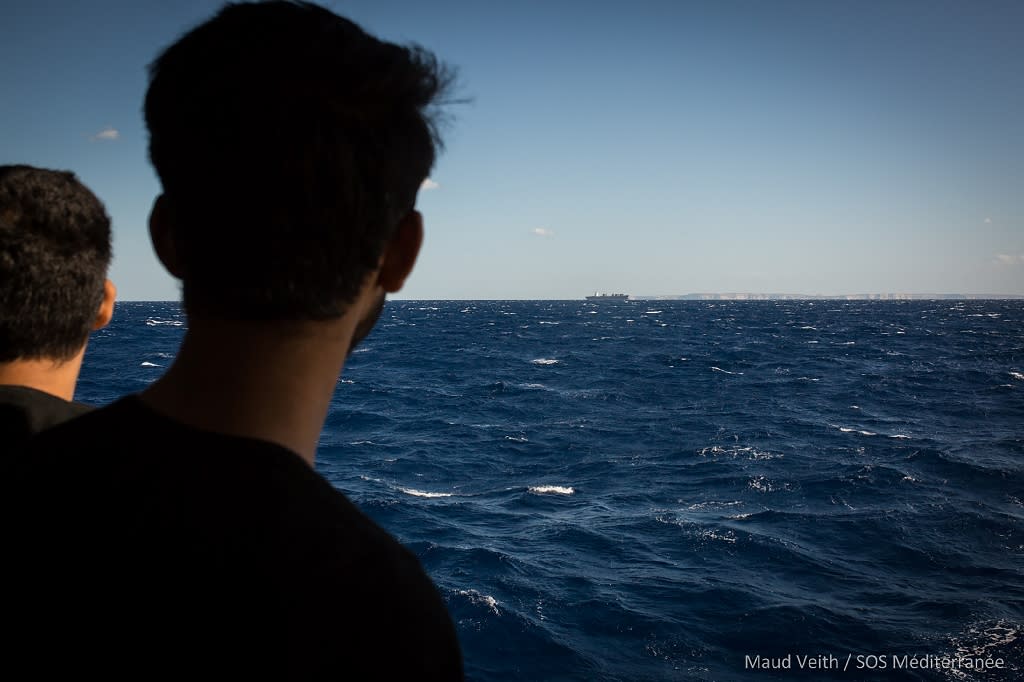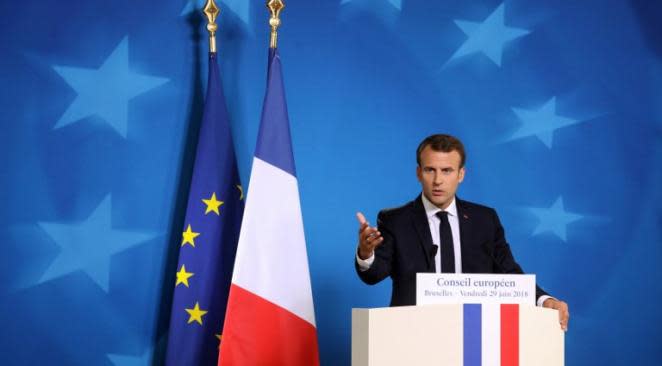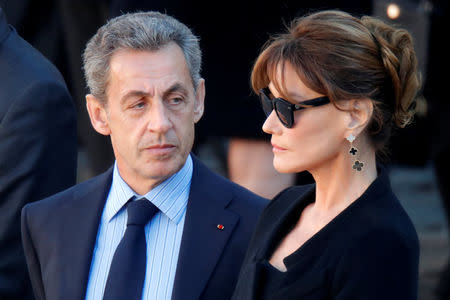What is ‘Eurafrica’? Why idea from Germany is suddenly being talked about again

Eurafrica is an idea with a murky past, proposed by Germans in the last years of Europe’s empires – but also associated with the rise of the European Union.
But the idea (that Europe and Africa have an entwined destiny), is suddenly under discussion again in 2018, as Europe wrestles with issues of migration and Brexit.
This month, the Economist’s Charlemagne column argued that it is impossible for Europe to build a wall across the Mediterranean – and that ‘Eurafrica’ may be a more important idea than ‘Eurasia’ in the long run.
The column argued, ‘The two options, Fortress Europe versus Eurafrica, may one day end up as a choice between denial and reality.’
The column drew a predictable surge of disgust from the far right, with publications such as ‘Defend Europa’ denouncing the magazine as ‘Rothschild-owned’ and globalist.

The same disgust erupted when Emmanuel Macron suggested that ‘Europe has its destiny bound with Africa’ in a speech earlier this year.
Macron said, ‘Africans are mostly turning to Europe because the continent is not an island, because of our location, and because Europe has its destiny bound with Africa.’
READ MORE ON YAHOO NEWS UK
Big Ben bongs for the first time since New Year in test ahead of Remembrance Sunday
British man, 23, dies after being bitten by a sea snake while working on a fishing boat in Australia
Woman’s Fitbit ‘may have solved her murder’ after police look at heart rate data
Britain’s Brexit divorce could rise by billions because of EU spending promises
Here’s how many people who have died taking selfies in the last few years
Macron predicted that migration from Africa would continue for ‘many years to come’.
Right-wing publications such as Breitbart wrote fevered pieces predicting a tide of African migrants – inspired (like Macron) by the research of Duke University academic Stephen Smith.
Smith has argued that African immigration is inevitable, driven by a youthful population on a ‘quest for modernity’.
The term Eurafrica (or ‘Eurafrika’) was first mooted in Germany, as the basis of a strategic partnership between Africa and Europe.
It came from a time when many European countries had colonies in Africa – and looked to those territories to provide raw materials and labour.
In the post-war years, the idea was discussed by politicians of various hues as Europe’s nations formed the European Union.

But as African nations became independent – Algeria left the European Communities on independence from France – the idea was largely forgotten.
The Spectator credits three events with driving a wedge between European nations and Africa – decolonisation as the European powers left Africa, the neutrality of African states during the Cold War, and European states turning towards Asia.
But in recent years, it’s had something of a revival – albeit with mixed response.
Former French President Nicolas Sarkozy proposed a ‘Eurafrica’ partnership on a visit to Dakar in 2014.
Sarkozy said, ‘You want another type of globalisation, with more humanity, more justice and more rules. So does France.
‘What France wants with Africa is co-development, shared development … What France wants with Africa is to prepare the advent of ‘Eurafrica’, a great common destiny which awaits Europe and Africa.’
Many locals were unimpressed, with analysts citing Sarkozy’s tough policies on immigration.
Right-wingers predict that instead of Europe and Africa coming together, immigration will instead divide Europe.
Right-wing think tank the Gatestone Institute approvingly quotes Niall Ferguson’s prediction that immigration will be the ‘fatal solvent’ of the EU in a piece on ‘Eurafrique’
Giulio Meotti writes for the Gatestone Institute, ‘Not only does Europe continue to fragment as anti-immigration sentiment gathers political strength, but, as a result of the migrant crisis, the EU’s border-free internal zone, Europe’s most cherished prize after the Second World War, is now defined as “at risk” by the Italian government.’
But experts such as Stephen Smith say the time has come to re-examine what immigration means, in a globalised world.
Stephen Smith argues that immigration is more complex than many imagine. He said in a speech this year, ‘We still think in yesterday’s world, we think of the rich northern countries and poor southern countries.
‘But social inequality is exploding in all countries, among those who are the winners and losers in globalisation.
‘And as long as we don’t take care of the losers of globalisation, we will all be losers.’

 Yahoo News
Yahoo News 

